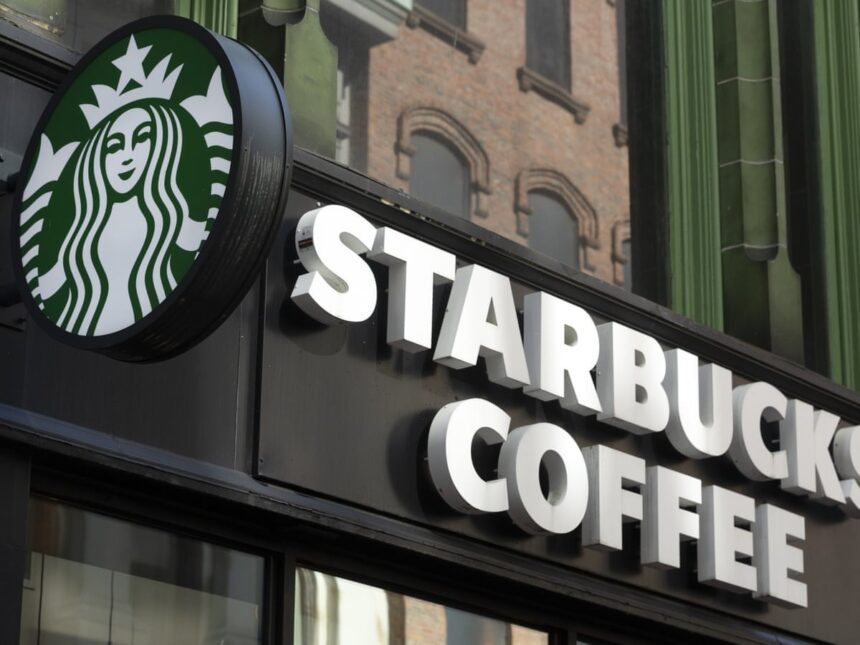You are already aware of the 2023 armed conflict between Israel and the Palestinian group Hamas. This war has been triggered since early October, leading to thousands of deaths, violence, and injuries. Several international brands were heavily impacted by the geopolitical tensions created by the war, and Starbucks is one of them.
Starbucks is an American global chain of coffeehouses and roastery reserves. It is currently encountering masses of protests and boycotts. The company’s value went down, people online on social media platforms are calling for the Starbucks boycott, and the connection between the company and Starbucks Workers United remains strained.
If you are curious to know the whole matter, then here we are spilling the beans. In this article, you will explore the complete story of the Starbucks dissent, what the CEO’s take is, and what the financial deficits of the company are.
Understanding the Issue
The Starbucks boycott started with a social media post tweeted by Starbucks Workers United on their X handle, which said “Solidarity with Palestine!” Other local Workers United branches supported Palestine and rebuked Israel for violence. In response, Starbucks sued the Workers United’s actions and issued official statements disagreeing with the claims and views expressed by them and its members. The company called them misleading and confusing. Consequently, the people, both in support of Israel and Palestine, started calling out to boycott Starbucks.
To worsen the case, this issue was intermixed with the union fight in the US. Apart from the boycott, there were existing tensions among US workers regarding unionization. Since late 2021, employees at over 370 company-owned Starbucks stores have voted to unionize, yet no contract agreements have been reached at any of these stores. Lately, three hundred and 150 staff workers walked out of around 10,000 Starbucks stores in the US. This increased the rage between the company and Workers United, which became the reason behind the fall of the company’s image, value, and reputation.
CEO’s Reflection
When it comes to the CEO’s take on the Starbucks boycott, Laxman Narasimhan addressed the whole situation by stating “the state of the world” and remarking, “We stand for humanity.” He conveyed that he is concerned about the world we live in and the conflicts that create violence against innocents through hate and weaponized speech, all of which he disapproves of. He also revealed that many of Starbucks’ stores, including in North America, have faced vandalism.
In addition, he proclaimed that the protesters are intimidated by the misrepresentation of the social media posts and have a wrong impression of the company and its beliefs. He also said that his company works with the local authorities to ensure that their partners and customers are safe. The CEO empathized that “nothing is more important. Our stance is clear. We stand for humanity.”
The associated reporters disclosed that the company resubmitted the lawsuit in November “to include language acknowledging its support for workers’ rights to voice their opinions on the Middle East conflict and other political matters.”
The Company’s Financial Downturn
Amid the Starbucks boycott in the US and Middle East, the company has lowered its annual sales forecasts and fallen short of market expectations. The Israel-Hamas conflict had a substantial effect on the sales and traffic of the company. Initially, shares declined during extended trading, but they rebounded, increasing by approximately 3%.
Starbucks projected that sales at global outlets open for at least a year would not achieve the previously anticipated growth level. Also, the coffee giant revised its global same-store sales forecast to a range of 4% to 6%, down from the previous range of 5% to 7%. In the preceding month and at the close of 2023, reports emerged indicating that Starbucks had incurred nearly $11 billion in market devaluation, attributed to a vigorous Starbucks boycott, employee strikes in solidarity with Palestine, and a lackluster holiday promotion.
In anticipation of expected losses, Starbucks unveiled its Red Cup Day marketing initiative as the festive season drew near. This strategy entitles customers to a complimentary reusable holiday cup with each purchase. Despite this effort, since the promotion’s announcement in mid-November, Starbucks has witnessed a significant drop of 8.96 percent in its shares, translating to a staggering $10.98 billion loss—the deepest plunge recorded since 1992.







